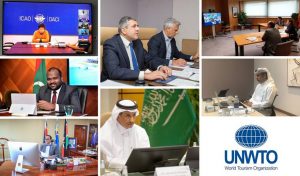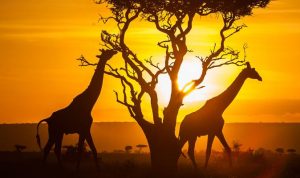Bangkok (Thailand) – March 20, 2020 (travelindex.com) – Organisations and individuals making outstanding contributions towards the successful promotion of the travel and tourism industry throughout the Asia Pacific region are encouraged to submit entries to the PATA Gold Awards 2020. The deadline for submissions is May 14, 2020. The PATA Gold Awards Dinner and Presentation will take place during PATA Travel Mart 2020.
Sponsored by the Macao Government Tourism Office (MGTO) for the 25th consecutive year, the PATA Gold Awards sets industry standards for excellence and innovation. In 2020, the Pacific Asia Travel Association (PATA) is delighted to be enhancing the PATA Gold Awards by introducing several new categories in order to reinforce its position as innovative and prestigious award for the Asia Pacific travel and tourism industry.
PATA will present three Grand Title Winners for best of show entries in the following broad categories: Marketing, Sustainability and Human Capital Development with 23 Gold Awards to be bestowed. New categories that are now open for submissions include Climate Change Initiative, Tourism for All, and Youth Empowerment Initiative.
Ms Maria Helena de Senna Fernandes, Director of MGTO, said, “The relentless growth trajectory of tourism has opened new avenues of development, however by its nature the industry is prone to disruption in the face of events like the COVID-19 outbreak. As a tourism city, Macao is glad to support the PATA Gold Awards, and encourages government and private tourism stakeholders to join this platform. By showcasing its best practices, organizations and individuals can contribute to our ongoing dialogue on how we can work together to build a vibrant, yet sustainable and resilient tourism industry in these volatile times.”
“We are sincerely grateful to MGTO for sponsoring the PATA Gold Awards 2020 and for their continued commitment to a responsible and sustainable tourism industry. These awards provides us with the perfect opportunity to recognise and reward the very best the Asia Pacific travel industry has to offer,” said Dr. Mario Hardy, CEO of PATA. “The winners of these awards set industry standards for excellence and innovation and serve as examples for others to follow. This year, we have streamlined the number of awards to truly highlight the accomplishments of the winners, therefore I encourage all organisations that demonstrate excellence in conception, creativity and fulfilment to submit their applications today.”
Winner privileges:
– Gain a major boost to the organisation’s marketing and public relations profile
– Attract valuable media coverage in various PATA communications channels including the weekly PATA newsletter, press releases and social media channels
– Entitled to leverage the prestigious PATA Gold Awards Winner logo on collateral materials
– Highlights of the winning entries on display at PATA Travel Mart for delegates to enjoy
– Featured in the winners’ showcase booklet and PATA Gold Awards video
Judged by an international panel of experts, the Gold Awards recognise exceptional achievement in three broad categories with 23 Gold Awards and three Grand Title Winners on offer:
– Marketing (14 Gold Awards and one Grand Title Winner)
– Sustainability (8 Gold Awards and one Grand Title Winner)
– Human Capital Development (one Gold Award and one Grand Title Winner)
The PATA Gold Awards’ details, brochure, and information about past winners are all available at www.PATA.org/goldawards
For further information, please contact goldawards@PATA.org.
About PATA
Founded in 1951, the Pacific Asia Travel Association (PATA) is a not-for-profit membership association that acts as a catalyst for the responsible development of travel and tourism to, from and within the Asia Pacific region. The Association provides aligned advocacy, insightful research and innovative events to its more than 800 member organisations, including 95 government, state and city tourism bodies, 20 international airlines and airports, 102 hospitality organisations and 70 educational institutions, as well as thousands of young tourism professional (YTP) members across the world. The PATA network also embraces the grassroots activism the PATA Chapters and Student Chapters, who organise numerous travel industry training programmes and business development events across the world. Thousands of travel professionals belong to the 35 local PATA Chapters worldwide, while hundreds of students are members of the 22 PATA Student Chapters globally. The PATA mPOWER platform delivers unrivalled data, forecasts and insights to members’ desktops and mobile devices anywhere in the world. PATA’s Head Office has been in Bangkok since 1998. The Association also has official offices or representation in Beijing and London. PATA’s Annual Theme for the 2020 calendar year is Partnerships for Tomorrow.
Contact information:
PATA
Paul Pruangkarn
Director – Communications & External Affairs
+66 (02) 658-2000 | communications@PATA.org | Bangkok, Thailand










